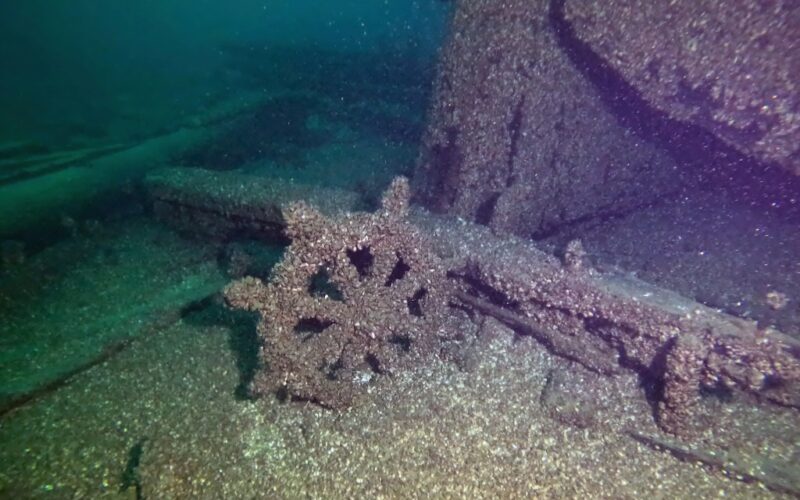Researchers have located the wreck of a 144-foot schooner that was packed with iron ore when swallowed by Lake Michigan during a fierce 1886 storm, the Wisconsin Underwater Archeology Association (WUAA) announced Monday.
The F.J. King had taken on an almost supernatural “Pirates of the Caribbean” air of mystery over the past century, with attempts to locate it dating back to the 1970s.
“She had developed a reputation as something of a ghost ship due to her elusiveness,” the WUAA said, announcing the find 139 years to the day after the F.J. King sailed into a gale on Sept. 15, 1886, while transporting 600 tons of iron ore from Escanaba, Mich., to Chicago.
Captain William Griffin and his eight-person crew, after fruitless hours trying to stop the schooner from breaking apart, watched from the relative safety of a yawl boat as the winds ripped off the ship’s stern deckhouse, catapulting his papers 50 feet skyward. Shortly afterward it nosedived, vanishing beneath the 8-10 foot waves off Wisconsin’s Door Peninsula, 19 years after its 1867 construction in Toledo, Ohio.
Underwater explorers knew the ship was down there somewhere. The question was where, given contrasting potential locations estimated by Griffin, who had barely escaped with his crew in the pitch-black night, versus a mast sighting closer to shore reported by lighthouse keeper William Sanderson the following week.

Working with 20 citizen scientists and community historians, researcher and WUAA president Brendon Baillod reasoned that Griffin “may not have known where he was in the 2 a.m. darkness,” and focused on a 2-square-mile grid around Sanderson’s estimated coordinates. Informed by a trove of newly digitized original documents about the shipwreck and aided by cutting-edge technology such as side-scan sonar, searchers found the waterlogged ship about a half hour into their search on June 28, 2025, no more than half a mile from their starting point.
Watching as a 140-foot-long object emerged in the murky depths and a “remarkably intact” hull took shape, “a few of us had to pinch each other,” Baillod said in the WUAA’s statement. “After all the previous searches, we couldn’t believe we had actually found it, and so quickly.”
With News Wire Services








